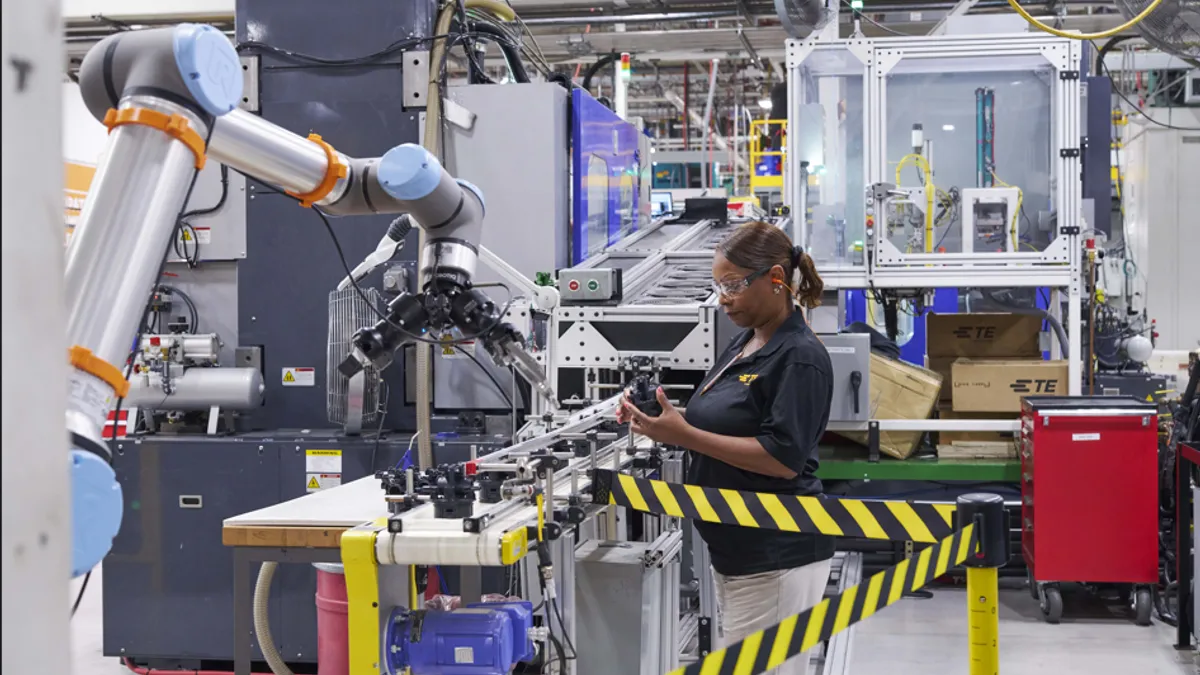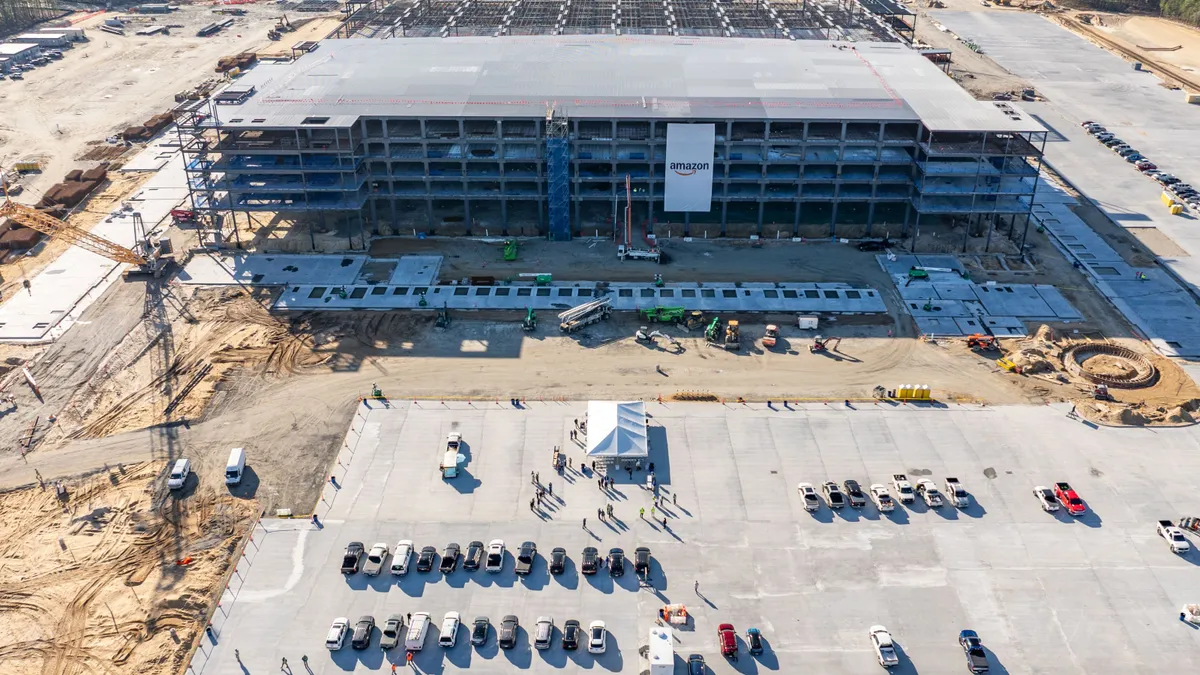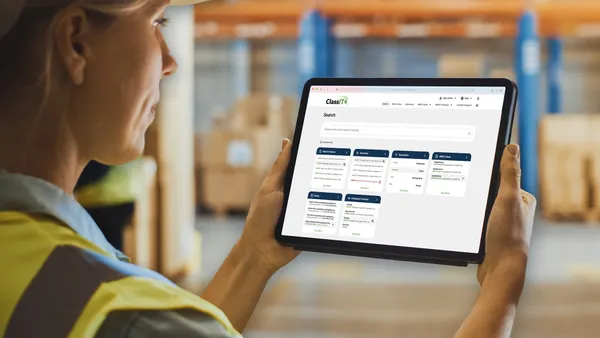Mergers and acquisitions have always been a useful tool for companies looking to expand their services, but as supply chains face increasing timeline, technology and talent strains, logistics startups have become hot targets in an evolving landscape.
The strategy pays off: since startups often seek to correct large market inefficiencies, a well-timed purchase could help companies lead or avoid disruption by adopting new ideas.
Supply chain startups and deals are plentiful these days.
Over 350 supply chain management ventures — from freight forwarders to warehouse analytics platforms — are currently listed on AngelList, an online network of investors, startups and job seekers.
Freight forwarding startups attracted roughly $1 billion in investments over 18 months in 2014 and 2015, according to the Wall Street Journal, more than double the amount invested over the previous five years. And in August, Uber, C.H. Robinson and Honeywell all inked deals to purchase startups and improve their offerings.
Whether it's Uber's drive for self-driving trucks or Honeywell's supply chain software expansions, both symbolize large companies' increased willingness to bet on startups as a way of outsourcing innovation. We asked several startups to help us dive into this trend.
Addressing Inefficiencies
Many startups in the freight market are developing apps, like Uber-for-Trucking, and big data platforms to help reduce longstanding inefficiencies and take advantage of a dormant market.
But Eytan Buchman, spokesman for online freight marketplace Freightos, cited growing investor interest as a key driver of this trend.
"Available funding, a resurgence in B2B startups — finally recovered from the B2B bubble in 2000 — and the understanding that logistics is one of the greatest inefficient markets has definitely fueled this,” said Buchman.
The company he represents raised $23.3 million in four equity rounds to market a cloud-based Expedia-like freight marketplace through an app, aiming to help global logistics providers and retailers generate door-to-door rate quotes and manage multi-modal freight rates. Most recently, the company acquired WebCargoNet to help consolidate its air cargo offerings.
Read more: Freightos deal sets up largest freight forwarding marketplace
Freightos founder and serial entrepreneur Zvi Schreiber found in a previous company that merely getting freight quotes for goods being imported from China to the United States took days, and that “it was difficult to compare prices from multiple providers due to the dizzying array of surcharges,” Buchman said.
“The logistics space, while technical, has some huge opportunities," he added. "Over $19 trillion dollars of goods are shipped around the world annually, with the international forwarding market alone valued at hundreds of billions of dollars. The combination of a big pain point, a large market and a glaring inefficiency was all that Zvi needed to start Freightos.”
Targeting Technology
“Logistics is notorious for being an old-fashioned business, but changing shipper expectations, new market players, and eroded margins have prompted industry leaders to reassess strategies,” according to a Freightos survey published earlier this year.
The survey found 86% of logistics decision-makers see technology as the best way to drive efficiency and reduce costs. Although executives recognize the core elements of freight transport have yet to change, technology and big data are increasingly seen as key mechanisms to improving efficiency.
Automation, “appification” and Big Data will be critical to supply chains, creating opportunities for startups, according to Jason Schenker, president and CEO of Prestige Economics, a market forecasting firm in Austin, TX.
“There’s a fairly huge appetite for anything tech related,” Schenker said. “Most of what we’re going to see moving forward are high-tech opportunities, or things that allow people working in the supply chain to gain some sort of leverage that they need in order to meet increasing demands which are going to become exponentially complex.”
As retailers transition from physical to online stores, he explained, the companies will require better data analysis, automation and more rapid dispatch of goods. "You're going to see increased demands on the supply chain to be much more customized to end-user needs, even though you’re dealing with a massive supply chain,” he added.
Read more: How e-commerce sparked a logistics boom
Niche technologies often start in smaller companies, achieve scale quickly, and then are acquired by much bigger players, he noted.
“I think that’s going to be the game plan for a lot of other players in the space,” Schenker told Supply Chain Dive.
From Innovation to Acquisition
Given increased interest from investors and other companies, innovators may find themselves repeating the startup cycle for profit.
At least that was the case for Edith Simchi-Levi, who managed two other firms before co-founding Opalytics, a Boston-based startup offering a platform to help companies deploy their own custom apps.
Simchi-Levi previously worked to develop network design and inventory optimization software firm LogicTools, first acquired by ILOG before purchase by IBM then LLamasoft, and consulting firm OPS Rules, which was acquired by Accenture Analytics earlier this year.
“Opalytics is our third company, which we started in order to develop some new applications and provide software that we needed at OPS Rules,” said Simchi-Levi. Opalytics, founded in 2014, is self-funded, she told Supply Chain Dive.
The competition in the supply chain analytics space is scarce, too, according to Simchi-Levi who noted few new entrants in a field dominated by long-standing players. However, she added, "we are already being approached for acquisition by software vendors and consulting companies who need our technology in order to compete."
As for Opalytics’ future?
“We also have an opportunity to create a scalable business with our platform approach because it is not limited to supply chain analytics," Simchi-Levi explained. "In either case, an acquisition is the most likely outcome."





















